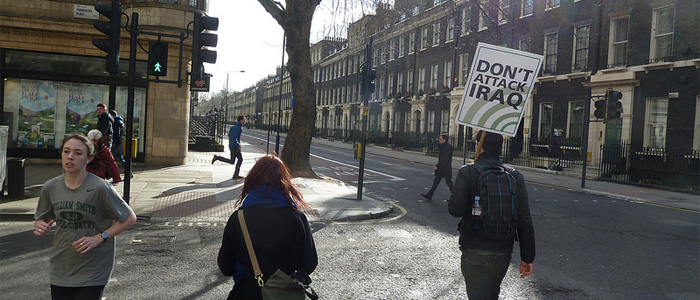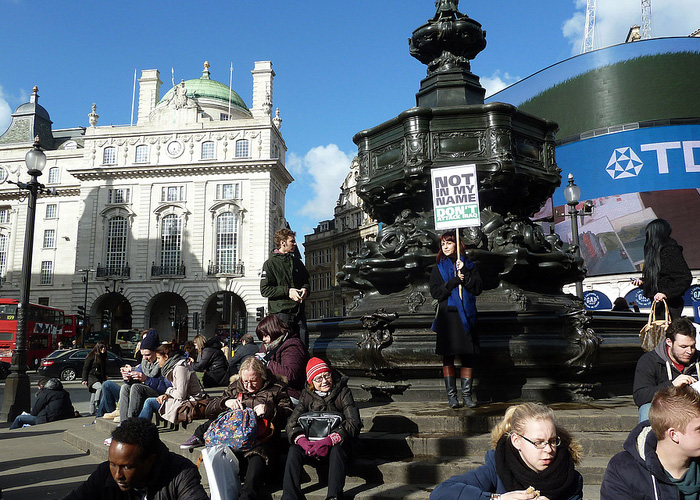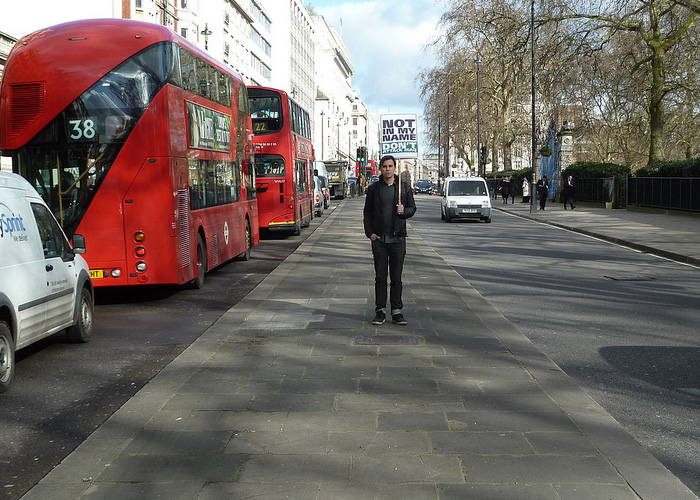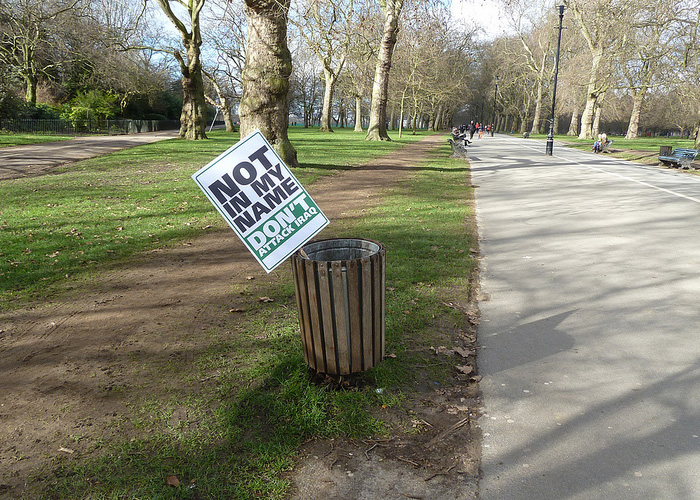Last week was the tenth anniversary of the largest of the public protests preceding the Iraq War: February 15th 2003, when over a million people marched through London, and millions more turned out around the world.
On the date of that anniversary, I and two friends walked the route of the protest, from Gower Street, down Shaftesbury Avenue and Piccadilly, to Hyde Park. We carried a replica placard from the original event.
I remember moments from that day in 2003. I remember the crowds, how slowly we all moved, how the protest seemed to fill the city. I remember passing the Palace Theatre on Charing Cross Road, where the cast of Les Miserables, in costume, hung from the windows and waved flags and sang revolutionary songs. I remember stamping cold feet as we shuffled through Piccadilly Circus, for what felt like hours. I remember the light rain that began to fall as we finally reached the park, the speeches long finished. That curious protest elation, otherworldly, the city transformed by our passage, our voices hoarse from shouting.
I remember the sense of failure that followed. I remember the invasion, the politicians’ lies, the utter overwhelming sense of helplessness and disgust, the meatgrinder years of war. The feeling of a generation’s psychic hangover; the oppositie of political apathy, a generation—several generations—who spoke out, and were ignored. A legacy of ineffectual, frantic, painful protest that stretches, for me, back to Reclaim The Streets and forward through the campaigns for free higher education, global justice, the environment: campaigns ever more diffuse, ever more unachievable. But still we march.
We didn’t get many comments last week. One man, on a bicycle, said: “Nothing is true. Read the bible.” Another said “Bit late, aren’t you?” Yes. We were too late, then, too. Outside the Wolseley, an elderly Persian lady stopped us but we didn’t understand what she was saying. While she was talking, a young man screeched to a halt in a convertible and pointed to the number-plate: “Y1 RAO”. Why Iraq?
We felt invisible. Cities swallow intent and action in much the same way as history does. Who holds these memories now, memories of things that achieved nothing? Not the written record, not books that seek to rescue it, not books that use it as a backdrop. Only we have the memory, just as only we, all of us, marched. The significance is in the marching, in the memory, because that is all we have.
There is so much more to say about this, but not now. The walk last week was an act of memory, of memorial. A reenactment, indebted to but different from Jeremy Deller’s Battle of Orgreave, and Sharon Hayes’ In the Near Future. We talked about memories of that day. We talked about the nature of protest; its inefficacy, its necessity, its confusion, its failure. We walked because I did not know what else to do. I still don’t.




Comments are closed. Feel free to email if you have something to say, or leave a trackback from your own site.